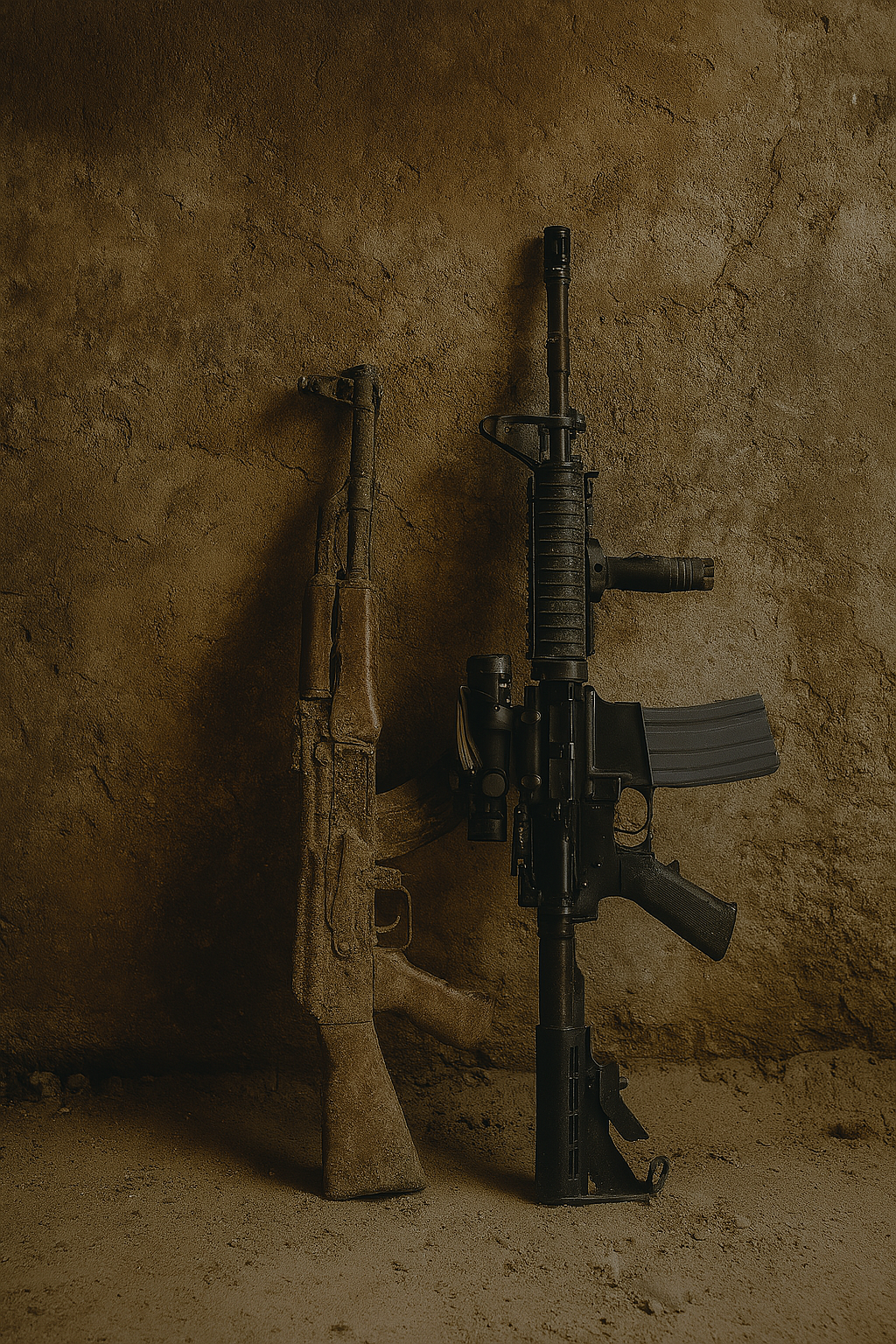
Three Chairs in the Dust
Share
Al Anbar Province, Iraq — During the Awakening
He wore no rank. No nametape. To everyone he was just “Sean.” In a sea of infantry Marines running patrols and stacking on doors, his purpose was different, his demeanor: subtle—deliberate, quiet, and alone when he had to be.
He wasn’t there to clear houses. His job was to bring light to the darkness, to lift the fog of war, and to answer the questions necessary to ensure the Marines always had the upper hand.
Sean was an 0211, a CI/HUMINT specialist—attached to a Marine infantry battalion in Al Anbar during the peak of the Awakening. His role: develop sources, gather intelligence, and shape the battlefield from the midst of the chaos in a place like western Iraq—where lines blurred and loyalties shifted with the wind. Every meeting was an op. Every handshake could lead to a gunfight.
One source stood out.
A known Al Qaeda in Iraq leader. A killer, respected by his men, feared by everyone else. But Sean had found the seam. A thread of self-preservation, power, or pride—maybe all three. He didn’t exploit it recklessly. He worked it deliberately.
They’d meet in the ruins—abandoned, bombed-out shells where the heat settled in the concrete and the air never moved. Always after dark. Always with just enough Marines to put up a fight, but not enough to spook the meeting.
Three chairs would be placed in the center of the room—two facing one. Sean would arrive first with his interpreter and a pair of infantry Marines. They’d clear the building, set the chairs, sweep the perimeter. Then they’d wait.
When the AQI man arrived, he brought two of his own—armed, unreadable. Introductions were made across the room. Then, a ritual: each man walked forward and leaned his weapon against the wall before taking a seat.
It was theater, but not empty. A message: We’re here to talk—for now.
Sean and the Terp faced the AQI leader. The Marines stood silently behind them, eyes fixed forward. So did the AQI Leader’s men behind him. Five minutes. Sometimes twenty. Never more than thirty. But in that time, Sean had to assess the truth, collect the information, give direction, and shape the source into something useful—while fully exposed.
Every meeting balanced on a knife edge. One lie too bold. One demand too sharp. One misstep from the men on the wall—and the room would ignite.
But Sean never blinked. He navigated tribal politics, loyalty tests, and battlefield deception with the precision of a man who understood what was at stake. It wasn’t about control. It was about presence. About showing up in the dust, under no name, with no rank, to speak face to face with killers—because someone had to.
And the job got done.
No ceremony. No after-action writeup with his name in it. Just intelligence passed, targets confirmed, raids greenlit. Another IED found before it killed a Marine. Another cache seized before it armed a squad of foreign fighters.
And then the room would be empty again.
Three chairs in the dust.
Rough Hands, Refined Purpose.
